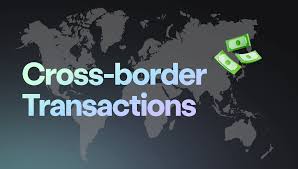Training course on Cross-Border Business Transactions
Training Course on Cross-Border Business Transactions is designed to provide participants with a comprehensive understanding of the legal, financial, and strategic considerations involved in conducting business across international borders.

Course Overview
Training Course on Cross-Border Business Transactions
Introduction
Training Course on Cross-Border Business Transactions is designed to provide participants with a comprehensive understanding of the legal, financial, and strategic considerations involved in conducting business across international borders. As globalization continues to expand, understanding the complexities of cross-border transactions is essential for legal professionals, business executives, and compliance officers. This course addresses key topics in international trade, regulatory compliance, and negotiation strategies, equipping participants with the knowledge to navigate the intricacies of global business effectively.
Throughout this course, attendees will explore key concepts such as international contracts, tax implications, dispute resolution, and the regulatory environment governing cross-border transactions. The curriculum integrates theoretical knowledge with practical applications, featuring case studies, discussions, and hands-on exercises that allow participants to engage critically with the material. By the end of the training, participants will be well-prepared to manage cross-border business transactions and develop strategies for successful international operations.
Course Objectives
- Understand the fundamentals of cross-border business transactions.
- Analyze key legal frameworks governing international trade.
- Explore the components of international contracts.
- Evaluate tax implications in cross-border transactions.
- Assess regulatory compliance requirements for international operations.
- Communicate effectively about cross-border legal concepts.
- Identify challenges in dispute resolution for international transactions.
- Conduct risk assessments for cross-border operations.
- Understand cultural considerations in international business.
- Explore case studies of successful and unsuccessful cross-border transactions.
- Foster collaboration among stakeholders in international trade.
- Develop strategies for effective negotiation in cross-border deals.
- Stay informed about emerging trends in global business transactions.
Target Audience
- Legal professionals specializing in international trade law
- Corporate executives involved in global operations
- Compliance officers in multinational companies
- Business development professionals
- Financial analysts and advisors
- Graduate students in international business or law
- Export/import specialists
- Non-profit leaders focused on global trade issues
Course Duration: 5 Days
Course Modules
Module 1: Introduction to Cross-Border Business Transactions
- Overview of the global business landscape.
- Key terminology in cross-border transactions.
- Understanding the importance of legal frameworks in international trade.
- Discussion on the evolution of cross-border business practices.
- Case studies on notable cross-border transactions.
Module 2: Legal Frameworks Governing International Trade
- Examination of international trade agreements (WTO, regional agreements).
- Understanding the role of international organizations in trade regulation.
- Evaluating compliance requirements for cross-border transactions.
- The implications of trade tariffs and non-tariff barriers.
- Case studies on legal challenges in international trade.
Module 3: International Contracts and Negotiation
- Overview of key components of international contracts.
- Understanding contract formation and enforceability in different jurisdictions.
- Evaluating negotiation strategies for cross-border deals.
- The role of dispute resolution clauses in international contracts.
- Case studies on successful international negotiations.
Module 4: Tax Implications in Cross-Border Transactions
- Understanding tax treaties and their impact on international business.
- Evaluating transfer pricing issues in cross-border transactions.
- The role of VAT/GST in international trade.
- Techniques for managing tax compliance in multiple jurisdictions.
- Case studies on tax challenges in cross-border operations.
Module 5: Regulatory Compliance for International Operations
- Identifying regulatory compliance requirements for cross-border transactions.
- Understanding export controls and sanctions.
- Evaluating the impact of anti-bribery and anti-corruption laws.
- The role of compliance officers in managing regulatory risks.
- Case studies on compliance failures in international business.
Module 6: Dispute Resolution in Cross-Border Transactions
- Overview of dispute resolution mechanisms (arbitration, mediation, litigation).
- Understanding the importance of jurisdiction and governing law.
- Evaluating strategies for effective dispute resolution in international contexts.
- The role of international arbitration institutions.
- Case studies on dispute resolution in cross-border transactions.
Module 7: Cultural Considerations in International Business
- Understanding the impact of cultural differences on cross-border transactions.
- Evaluating communication styles and negotiation tactics across cultures.
- Techniques for managing cross-cultural teams and partnerships.
- The role of cultural intelligence in international business.
- Case studies on cultural challenges in international transactions.
Module 8: Future Trends in Cross-Border Transactions
- Discussing anticipated changes in international trade regulations.
- Evaluating the impact of emerging technologies on cross-border business.
- Exploring the implications of economic shifts for global trade.
- Understanding the role of public policy in shaping international business.
- Case studies on innovative approaches to cross-border transactions.
Training Methodology
- Interactive Workshops: Facilitated discussions, group exercises, and problem-solving activities.
- Case Studies: Real-world examples to illustrate successful community-based surveillance practices.
- Role-Playing and Simulations: Practice engaging communities in surveillance activities.
- Expert Presentations: Insights from experienced public health professionals and community leaders.
- Group Projects: Collaborative development of community surveillance plans.
- Action Planning: Development of personalized action plans for implementing community-based surveillance.
- Digital Tools and Resources: Utilization of online platforms for collaboration and learning.
- Peer-to-Peer Learning: Sharing experiences and insights on community engagement.
- Post-Training Support: Access to online forums, mentorship, and continued learning resources.
Register as a group from 3 participants for a Discount
Send us an email: info@datastatresearch.org or call +254724527104
Certification
Upon successful completion of this training, participants will be issued with a globally recognized certificate.
Tailor-Made Course
We also offer tailor-made courses based on your needs.
Key Notes
- Participants must be conversant in English.
- Upon completion of training, participants will receive an Authorized Training Certificate.
- The course duration is flexible and can be modified to fit any number of days.
- Course fee includes facilitation, training materials, 2 coffee breaks, buffet lunch, and a Certificate upon successful completion.
- One-year post-training support, consultation, and coaching provided after the course.
- Payment should be made at least a week before the training commencement to DATASTAT CONSULTANCY LTD account, as indicated in the invoice, to enable better preparation.